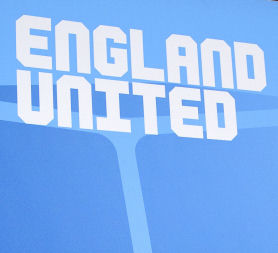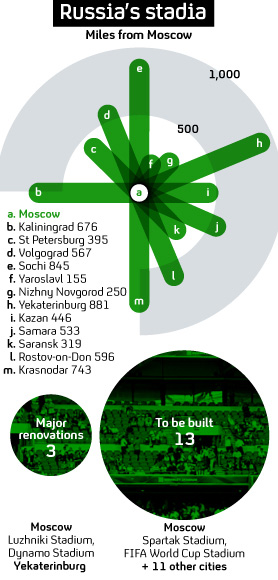England World Cup bid ‘the best’, say experts
Sports finance analysts tell Channel 4 News England’s bid to host the 2018 football World Cup is better than any of the rival bids when judged according to profitability and legacy.

England’s bid to host the 2018 World Cup is the best, if judged according to profitability and legacy.
That is the view of two football finance experts who spoke to Channel 4 News ahead of this afternoon’s decisive vote.
Dan Jones, a partner with Deloitte’s Sports Business Group, said: “I have yet to hear anybody say that England does not have the best bid.”
He continued: “I’ve not heard anybody dispute that England has put together a fantastic bid. And in terms of the politicking, the consensus is that they have run a very strong campaign, particularly in the last few hours.”
That view is shared by Heino Vockrodt, commercial director with Catalyst, the sports management consultancy and developer of the Power Table.
“Does the England bid have more going for it? Absolutely, if measured on the grounds that the World Cup has to be economically viable.”
I’ve not heard anybody dispute that England has put together a fantastic bid. Dan Jones, Deloitte Sports Business Group
He compares England’s application with the joint Holland-Belgium bid, which laid emphasis on the “green” benefits it would bring.
“Fifa probably doesn’t see things that way,” says Mr Vockrodt. “It’s about money, ultimately.
“What’s more, England is the home of football and had its last World Cup in 1966. It’s overdue, to a certain degree.”
Dan Jones points out that economic downturn of recent years means the bidding countries cannot be seen to be offering to build “white elephants”.
He cites the example of Portugal, which hosted the 2004 European football championships. A stadium in Faro was built specifically for the event, but has not been used since.
England, by contrast, has most of its stadia in place. “The legacy issue plays brilliantly for the English bid,” he maintains, “and it works on a global level because an England World Cup is the most lucrative.
“Legacy is a terrifically positive aspect for England – no white elephants, football around the world!”
England is the home of football and had its last World Cup in 1966. It’s overdue, to a certain degree. Heino Vockrodt, Catalyst
Heino Vockrodt compares the economic benefits that would accrue to England with those enjoyed by Germany, a country with a similar economy, during and after the 2006 World Cup.
“In 2006 Fifa were by far the biggest winners. They made some £2.6bn euros. That will probably go up to £3bn by 2018. The TV rights will account for 1.25-1.5bn euros, with the rest taken up by merchandising and sponsorship.”
If you looked at a graph of economic performance before and after an England World Cup, you would notice no spike during the event “because that activity is embedded in the overall economic pattern,” Mr Vockrodt explains.
By contrast, Portugal, a smaller economy, registered an economic boost of up to 1 per cent in 2004 thanks to the Euro 2004.
And the economic benefits of an England World Cup would not be focused in the London area, as with the 2012 Olympics. Councillor Mike Ainesbury, culture and leisure executive member for Manchester City Council, calculates Manchester’s economy could benefit to the sum of more than £80m.
“We’re basing our figures on those provided by the Munich experience in 2006. That was worth £80m to the economy there. It would be more than that in 2018.”
